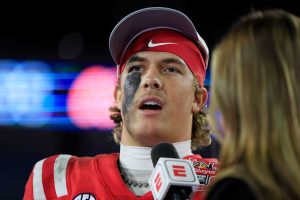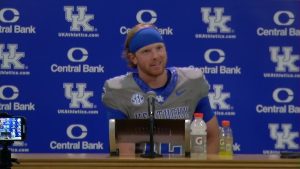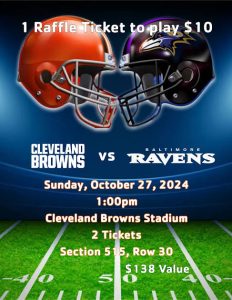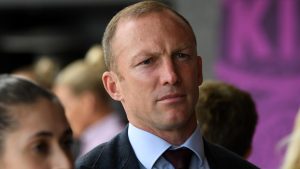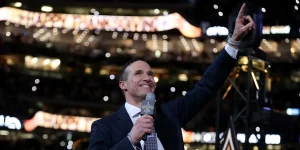
INDIANAPOLIS, IN - DECEMBER 01: A Nebraska Cornhuskers fan reacts to the score during the third quarter of the Big Ten Championship game against the Wisconsin Badgers at Lucas Oil Stadium on December 1, 2012 in Indianapolis, Indiana. (Photo by Leon Halip/Getty Images)
In contract amendment, Nebraska agreed to not fire Scott Frost for possible NCAA violations
Nebraska agreed not to fire former football coach Scott Frost for any NCAA violations stemming from an investigation into the program’s impermissible use of an analyst in an on-field coaching role, according to an amendment to Frost’s contract outlining certain metrics that would allow him to remain in the position beyond the 2022 season.

The school released the amendment Friday to USA TODAY following a ruling by a Nebraska state court judge, who ordered its release as part of a lawsuit filed by USA TODAY against Nebraska under the umbrella of its corporate parent Gannett.
According to the amendment, which was signed by Nebraska athletics director Trev Alberts on Nov. 11, 2021, the university said Frost would not be dismissed “based on any charges or findings against you or by you” at the conclusion of the investigation.
Confirmed by the university in August 2021, the investigation would conclude this past May and assess that Nebraska had committed a Level II violation for allowing a former special teams analyst to provide on-field assistance during practice and games. NCAA rules prohibit analysts from this sort of hands-on instruction. Prior to the amendment, Frost’s contract included language that could have given the university grounds to terminate him for cause based on the severity of the rules violation if it so chose.
For his part in the rule violation, Frost was given a one-year show-cause order and a five-day suspension from all coaching responsibilities at some point during the 2022 season. Frost was fired in September after the Cornhuskers lost two of three to open the year.
In the document, the university also agreed to give Frost a one-year extension through the 2027 season and a pay raise back to his original contract had the Cornhuskers won six games, as Alberts confirmed earlier this week.
During an appearance Tuesday on the Huskers Radio Network, Alberts said Frost would have received the extension and had a $1 million pay reduction negotiated last winter returned to his contract had he won at least six games, reached a bowl and shown “incremental progress.”
“It really isn’t a huge secret,” Alberts said. “We needed to get to a bowl game. And not backing into a bowl game. A minimum of six (wins). So if we won six games and got to a bowl game, we could revert back to his original contract.”
USA TODAY had sued in the district court of Lancaster County, Nebraska, to force the university to release documents in which the parties memorialized the metrics related to Frost and men’s basketball coach Fred Hoiberg.

In a ruling issued on Tuesday, the judge presiding over the case, Ryan S. Post, said USA TODAY had met the burden necessary to acquire the metrics added last winter to Frost’s reworked contract.
Nebraska had argued the request should be denied since Frost was no longer employed by the university. The court ruled that Frost’s dismissal “has no bearing on whether these records are public records subject to disclosure under the relevant statutes.”
The school also asked the court to apply the “personal information exemption,” citing a determination made by the Nebraska Attorney General’s office that “the metrics are personal in that they relate to, and affect, a particular person, Coach Frost.”
Michael F. Coyle, an attorney from Fraser Stryker PC, argued for USA TODAY that because the university and athletics department are publicly funded, the school was required to release the amendment. The ruling determined Nebraska had not “shown by clear and convincing evidence that the personal information exemption exempts the Scott Frost metrics from disclosure,” and said the university must share the metrics within seven days.
The court found in the same ruling that USA TODAY had not met the burden related to metrics in Hoiberg’s contract “because no evidence at trial showed such records exist.”
Nebraska’s Director of University Records, Jaclyn Klintoe, testified to conducting a “diligent search” of physical files and an electronic document management system but finding no records related to any metrics in Hoiberg’s deal, which was redone after the 2021-22 season. Hoiberg is 24-67 overall and 9-50 in Big Ten play in three seasons.
Frost initially signed a seven-year deal worth $5 million annually but had that contract reworked after suffering his fourth losing season in a row. An amendment to that deal signed last November docked Frost’s pay to $4 million annually and renegotiated his buyout from $15 million to $7.5 million should he be fired after Oct. 1 of this year.
A former Nebraska national championship-winning quarterback, Frost was hired in late 2017 to enormous fanfare inside and out of the state after going unbeaten in his final season at Central Florida.
Bogged down by game mismanagement, recruiting misses and poor player development, his teams never posted a winning season and failed to finish higher than fifth in the Big Ten West. His record of 16-31 gives Frost the second-worst winning percentage of any head coach in the modern era of the program.

On Hoiberg, Alberts said Tuesday that no such document “even exists with Fred.”
“Fred and I, it was more verbal. That’s what my intent was with Scott, as well. It was more comfortable for Scott to have something in writing, so we went down that path.”


